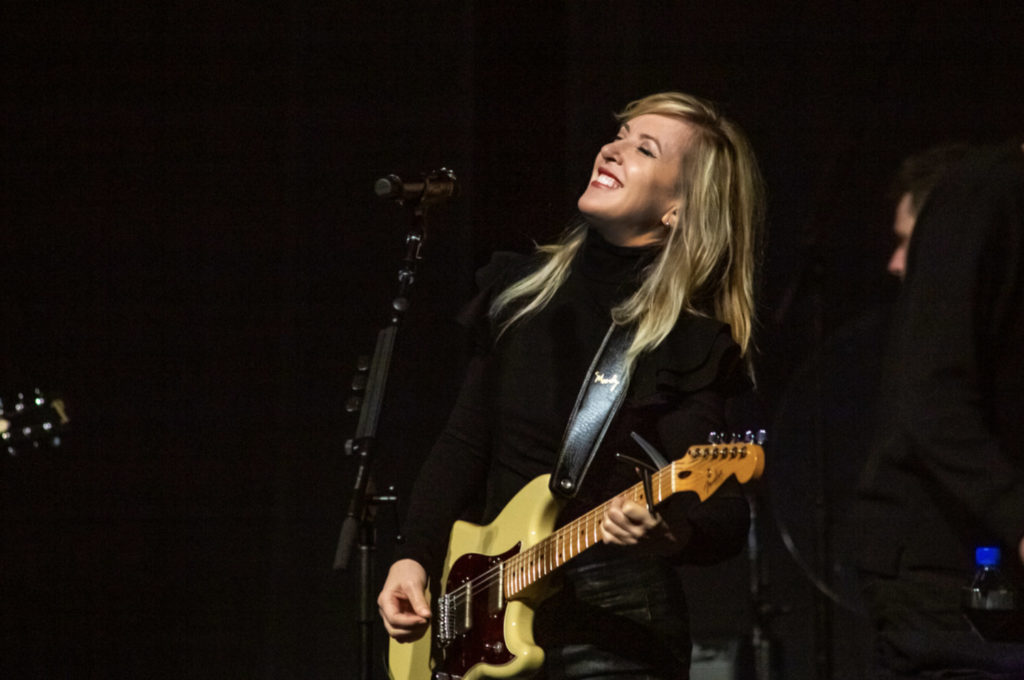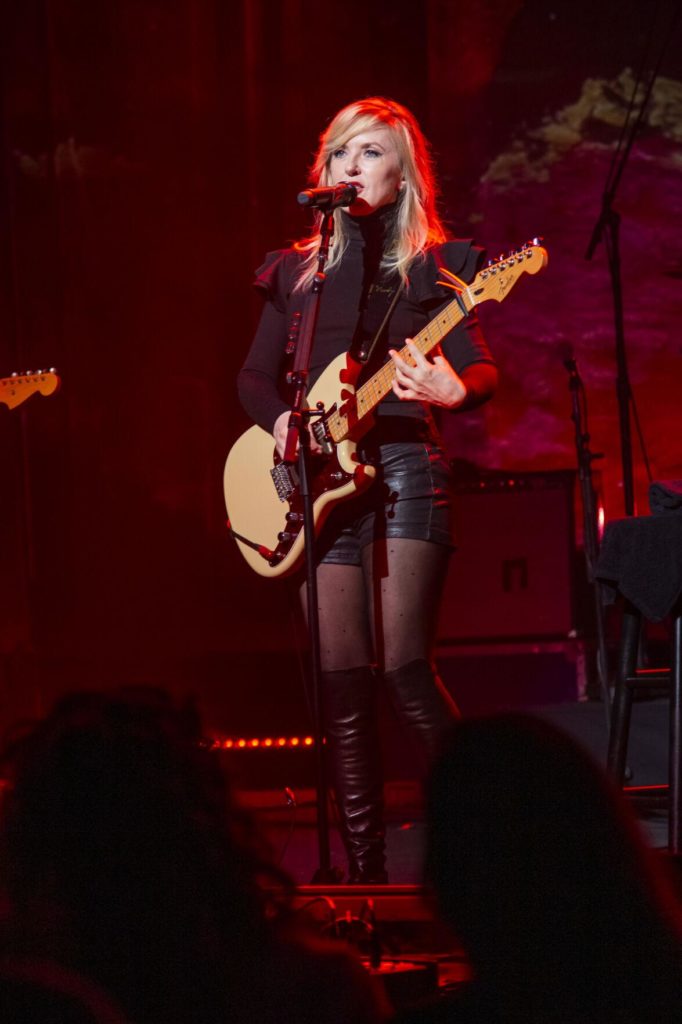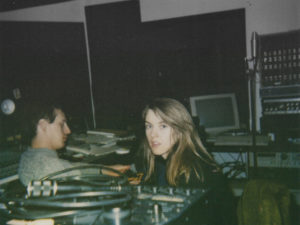By Blake Peterson
425 Magazine | November 15, 2023
I’ve exiled myself to Liz Phair’s “Guyville” lots of times. But no trip thus far quite compares to the one last night, where at the Moore Theatre in Seattle the 56-year-old singer-songwriter celebrated the album’s 30th birthday by playing all 18 of its songs. The show — the sixth on an overall 23-stop tour — was like getting a high-def, deluxe version of an album I and I’m sure most of the audience have played so deeply into the ground that it was admittedly a little jarring at first to hear its songs be performed so loudly, their rock ‘n’ roll bonafides fully realized. (Phair looked the part of the rock star in a big-shouldered black turtleneck and leather shorts and boots.)
If scheduling this tour didn’t already indicate as much, Phair is acutely aware of “Exile in Guyville”‘s personal significance to its fans. (“I wish I could be inside all of your heads to see all your memories,” she said at one point.) I turned to it growing up as if Phair were a cool, older guide to life’s messiness, a status helped by a voice that was winsomely monotone and often suffused with what sounded like an eye roll but never in ways that meddled with her gifts as a singer-songwriter, oscillating easily from funniness to emotional vulnerability to admirably TMI in her basest desires.
Now that I’m the same age as Phair was when she released the album, I can better hear it now as the evocative work of someone navigating life’s various joys and indignities. Its effect changes; its resonating power doesn’t. Phair said at the show that the tour has made her reflect on the hungriness for both professional and social success she craved at the time she made it, and how time has recast everything from her life 30 years ago as a kind of liminal space — a period difficult to realize until it was gone that it was among the best of her life.


The rumors are true that Phair isn’t a natural-born performer. It took until maybe the 10th track, “F*** and Run,” which she joked would probably really get the sing-along portion of the evening going, that she seemed conspicuously at ease on stage. But I can’t imagine anyone at the concert was expecting Phair to command the crowd with the frontwoman bravado of, say, her excellent opener, Blondshell. These are songs that saw their origins in cassette recordings handmade in Phair’s bedroom, not at the time thought to have the potential to see enough success — let alone interest from the world at large — to eventually kick off a rollicking anniversary tour.
It’s tricky to have intimate songs fill a venue as large as the Moore. But Phair, having refined them for a live setting over the last three decades, succeeded, refreshing some cuts — like the blush-worthy “Flower” (which, fittingly, was the song where her mic cut out a few times, as if it couldn’t handle what she was saying) and “Girls Girls Girls” — with some welcome rock flourishes.

The sparest songs on the album, like “Canary,” were performed with unexpected theater-kid panache, Phair sometimes filling in the sonic space hovering in the air with interpretive dance-esque hand motions. She also consistently homed in on the melodic possibilities of her songs, sometimes even stretching notes out with vibrato, in a way she doesn’t on the album. Unlike most artists, who with time might go down a key or two to avoid the high notes they no longer can hit, Phair went up, like it would be unthinkable to plunge into the sardonic, deep-voiced affect defining her early singing.
Many anniversary tours see the first half of the show devoted completely to the album being celebrated, the second to the places the artist’s body of work went during the years bookending it on either side. But the wider scope of “Exile in Guyville” made it make sense that it stood as the main setlist, hospitable only to a few encore songs. What Phair selected for those — “Supernova,” “Johnny Feelgood,” “Go West,” and “Why Can’t I?” — spoke to her refusal to do what might make sense for an artist who’d made her name making such close-to-the-hip, no-frills music: retreat further inward. (“Go West,” from “Whip Smart,” can’t really be lumped in with that characterization, though: it sounds like a cut off “Exile in Guyville.”) With time, Phair only expanded her sound, making it more hospitable to radio — a move that, depending on who among her fans you’re talking to, was just fine or a betrayal. I’ve picked up most of what Phair has put down, though nothing then, and still, has the lightning-in-a-bottle, low-key perfection of “Exile in Guyville.”
Featured Image: Liz Phair (Photo: Rodrigo DeMedeiros)










